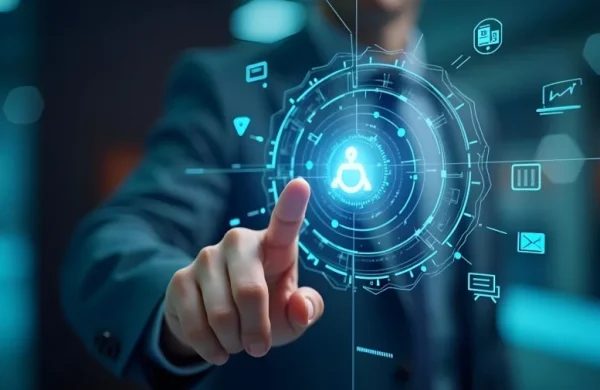Artificial intelligence: A gift for humanity or a pandora’s box?
- Update Time : Friday, July 4, 2025

We must be wise enough to embrace the gift that AI presents while building strong defenses against its dangers
Nawrin Sultana
It feels like we woke up one day and the world had changed. Artificial Intelligence, or AI, once a concept from science fiction movies, is now woven into our daily lives, served up to us by the giants of technology like Google, Microsoft, and OpenAI.
They have built an entire ecosystem of AI tools that are powerful, accessible, and poised to change everything. But as with any revolution, this one comes with both incredible promise and serious peril.
First, let’s look at the gift. The new AI services are nothing short of amazing. Consider something as fundamental as language. AI-powered voice-to-text tools can now instantly transcribe spoken words into text in dozens of languages. This isn’t just a convenience for sending a quick message. It is a bridge connecting worlds.
A small business owner in Bangladesh can now potentially negotiate with a client in another country without a human translator. A journalist can record an interview in a foreign dialect and get an instant, usable transcript. This single technology is quietly dismantling language barriers that have separated people for centuries.
Then there are tools like Google’s NotebookLM, which create new paths for education. Imagine a student in a rural village with a slow internet connection and no access to a library. If they can download a few key textbooks or research papers, NotebookLM can act as their personal tutor.
The student can ask the AI: “Explain this chapter in simpler terms,” or “Create a study guide based on these documents.” This is not just learning; it is educational inclusion on a massive scale. It gives people, regardless of their location or resources, the power to engage with knowledge in a deeper, more personal way.
But this incredible power has a flip side: Disruption. The same AI that can write a study guide can also write a marketing email, a news article, or a piece of computer code. This has sent a wave of anxiety through many professions.
Content writers, customer service agents, graphic designers, and even entry-level programmers are looking at these tools and wondering if their jobs are at stake. A future where companies can generate content and code with a few clicks instead of hiring a team is no longer a distant possibility; it is on the horizon.
Some might argue that developing nations, with economies less focused on these specific digital jobs, might be shielded from the initial shock. The thinking goes that a career in agriculture or local manufacturing in a country with low technological adoption is “safe.”
However, this view is too simple. The world is interconnected. These same nations are striving to build their own digital economies, and this disruption will eventually reach them, too. The nature of work is changing for everyone, everywhere.
This brings us to the biggest risk of all, one that overshadows even job losses: Ethics. The AI ecosystem is a perfect engine for creating and spreading deception. We are already seeing this on social media, where AI is used to create super-scams. Fake posts and messages can be personalized on a massive scale, making them far more convincing than the poorly-worded scam emails of the past.
The most vulnerable are often people with less education or digital literacy. They are more likely to believe a misinformation campaign that looks real or to fall for a scam that preys on their hopes or fears. The real danger is the erosion of trust. When we can no longer tell what is real and what is fake, the very foundation of our society begins to crack.
This is where technologies like “deepfakes” — hyper-realistic fake videos and audio created by AI — become terrifying. A deepfake video could show a politician saying something they never said, right before an election. It could be used to create fake evidence in a court case or to blackmail an innocent person. When a tool can perfectly imitate reality, truth itself becomes a victim.
What do we do?
We cannot put this technology back in the box. Instead, we must learn to manage it. This requires a three-pronged approach.
Big Tech must build with guardrails: The companies creating these tools have a responsibility to build safety and ethics into their AI from the start, not as an afterthought. This means being transparent about how their AI works and building in features that make it harder to misuse them for scams or misinformation.
Governments must create rules: We need clear laws and regulations for the age of AI. These rules should protect people from harm, like deepfake fraud, without crushing the innovation that brings us tools like NotebookLM.
We must learn to think critically: This may be the most important step of all. We need a massive, global push for digital literacy. We must teach ourselves and our children how to question what we see online. We need to become critical thinkers, capable of spotting the signs of a fake and understanding that not everything that looks real, is real.
The AI ecosystem is a double-edged sword. It offers us the power to connect people, educate the underserved, and solve complex problems. But it also holds the power to deceive, divide, and disrupt our world. The future will be determined not by the technology itself, but by the choices we make today. We must be wise enough to embrace the gift while building strong defenses against its dangers.
Nawrin Sultana is a Bangladeshi-Canadian marketing consultant, blending her cultural roots with a global perspective.

















